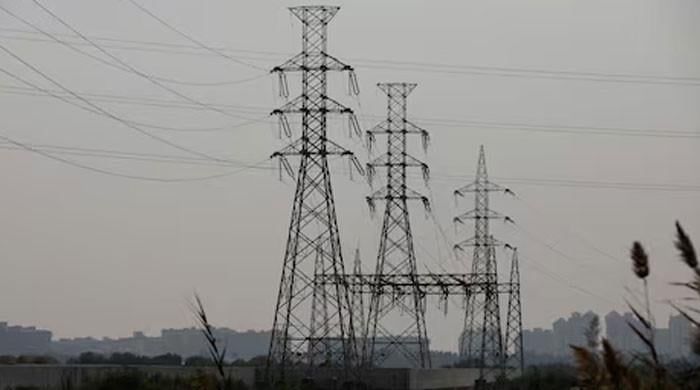With the recent increase in electricity tariffs, the debate on the rationality of capacity payment charges (CPC) to independent power producers (IPPs) has been renewed.
Previously, only a few voices raised concerns about these charges, but now the debate has widened and almost everyone outside the Treasury benches is discussing the need to renegotiate capacity payment agreements with IPPs to reduce electricity tariffs.
The government is in a dilemma. The high cost of electricity has become a contentious political issue, with opposition parties using public discontent to criticise the ruling government’s handling of the power sector. Industry bodies such as the Federation of Pakistan Chambers of Commerce and Industry (FPPCCI) and the All Pakistan Textile Mills Association (APTMA) are demanding a renegotiation of contracts with independent power producers to reduce electricity tariffs and keep industry and manufacturing competitive.
In the past, the government could have postponed passing on the CPC to electricity bills, making them part of the energy circular debt and thus calming the situation. However, to secure the next bailout program with the IMF, it cannot postpone passing on the CPC to consumers. IMF financial assistance is tied to strict fiscal discipline and structural reforms, including reducing subsidies and increasing cost recovery in the energy sector. These conditions put pressure on the government to pass on high electricity costs to consumers, exacerbating public discontent and economic tension.
Before we look at the path forward, let's consider how we got here.
The evolution of IPP policies in Pakistan can be classified into three main phases: the 1994 policy, the 2002 policy and the 2015 policy. Each of these policies has had distinctive features but shares some common elements that have influenced the determination of electricity tariffs.
Pakistan's reliance on independent power producers dates back to the 1994 Energy Policy, introduced to alleviate the chronic power shortages plaguing the country. The policy was intended to attract private investment by offering generous terms.
The return on equity was set at an attractive 18%, indexed to the US dollar, with a provision that included capacity payments. These payments are fixed charges made to independent power producers to ensure the availability of electrical capacity, regardless of actual electricity generation or consumption. While this model provided the financial certainty needed to attract private investors, it set the stage for future challenges, including high capacity payments and an over-reliance on expensive fossil fuel-based energy.
Instead, the 2002 policy set out to correct some of the inefficiencies of its predecessor by reducing the return on equity to 12%. This policy sought to balance investor interests with Pakistan’s economic realities, but continued the trend of indexing returns to the US dollar. This indexation remained a double-edged sword, as it protected investor returns from local currency depreciation while simultaneously exacerbating the financial burden on the government (read consumers) whenever the rupee weakened.
The 2015 policy introduced further improvements, emphasizing a more diversified energy mix, including renewable energy sources. While this policy continued to offer returns indexed to the US dollar, it also aimed to attract investment in cleaner energy projects. Despite these positive changes, legacy problems of high-capacity payments and overbilling persisted, largely due to entrenched structures and practices established by previous policies.
A comparison of these policies reveals several similarities and ongoing challenges that have affected the determination of electricity tariffs. All three policies maintained the practice of offering returns indexed to the US dollar, which, while attracting foreign investment, also made the energy sector highly sensitive to exchange rate fluctuations. This indexation has contributed significantly to the rise in electricity tariffs, as the depreciation of the Pakistani rupee has steadily increased the financial obligations of independent power producers.
In addition, each policy has had to deal with the problem of overcapacity. Generous terms offered under firm purchase agreements have resulted in installed capacity that far exceeds actual demand. This overcapacity translates into higher unit costs of electricity, as the fixed costs of capacity payments are spread across a smaller-than-expected consumer base. As a result, consumers face higher tariffs, contributing to economic stress and reducing industrial competitiveness.
Another problem that the three IPP policies failed to address is the overbilling of capital goods in some cases. Such artificially inflated project costs lead to perpetual returns on “phantom capital” that burden the economy without corresponding benefits. In addition, allegations of misreporting and overbilling by IPPs, such as inflated operating and maintenance margins, have further inflated costs and strained the energy sector.
Defective contractual arrangements have contributed to a spiral of circular debt, which reached Rs 2.64 trillion by February 2024. This debt cycle exacerbates financial instability and hampers economic growth. Rising electricity tariffs have led to premature deindustrialization, making Pakistani exports less competitive in the global market. High electricity costs put pressure on both households and businesses, reducing overall economic productivity and growth.
From the perspective of independent power producers, capacity payments help pay down their debt and recover capital expenditures, ensuring financial viability and continued operation. These payments also ensure that power plants are available to meet peak demand and emergencies, thereby maintaining grid reliability and avoiding blackouts.
The perspective of independent power producers is appreciated, but that does not help tariff-affected consumers, who are staging sit-ins to revoke those contracts. The contracts are backed by sovereign guarantees from the Pakistani government, and unilaterally revoking them can cause problems for the country. Even renegotiating the agreements is inherently difficult for several reasons. In addition to the issue of sovereign guarantees, renegotiation can undermine investor confidence, discouraging future investment not only in the energy sector but in the entire economy at large.
Third, the complexity of contracts, which often involve multiple stakeholders such as local and international investors, financial institutions, and government entities, complicates renegotiation efforts. Achieving consensus among all parties on revised terms can be a lengthy and contentious process. Finally, entrenched interests and potential resistance from powerful IPP lobby groups pose significant political and bureaucratic hurdles.
That said, the PTI government did renegotiate with some independent power producers, resulting in a reduction in the return on equity and a cap on the dollar exchange rate at Rs 148. However, the overall impact of these renegotiations was mixed. While there was some immediate financial relief, fundamental structural issues remained unresolved and the benefits were not as substantial as expected. The PTI government was unable to persuade Chinese independent power producers (IPPs) to renegotiate. The Chinese reportedly asked Pakistan to first renegotiate with local independent power producers (whose full list and owners are now in the public domain), reach an agreement, and then enter into similar discussions with Chinese investors.
The current government has also reached out to Chinese energy producers to renegotiate the treaty and is awaiting their response. However, there are two things that need to be kept in mind. First, Pakistan has not yet renegotiated with local energy producers. Second, it should not expect any favours from China just for the sake of making noise about it. CPEC is a small part of the larger Belt and Road Initiative (BRI). If China grants any favours to Pakistan, it may have to do the same with its other BRI partners. Therefore, Pakistan needs to resort to back-door diplomacy to extract concessions from Chinese energy producers, and this should happen after successful renegotiation with local energy producers.
The political implications of the controversy surrounding capacity payments to independent power producers are equally significant. The burden of high electricity tariffs falls disproportionately on the middle- and lower-income segments of society, fuelling public outrage and eroding confidence in the government’s ability to manage the economy. The controversy also exposes governance and accountability challenges in Pakistan’s energy sector. Addressing these governance issues is crucial to restoring public trust and ensuring sustainable development of the energy sector.
At best, a successful renegotiation with local and international IPPs could lead to significantly lower electricity tariffs, increased industrial competitiveness, and greater public confidence in the government's ability to manage the economy.
In the worst case, a failed renegotiation could exacerbate financial pressure on the government and consumers, leading to higher electricity tariffs, crippling industry and increasing public unrest. Any deviation from the conditions imposed by the IMF to appease public sentiments will jeopardize Pakistan's next program with the IMF, endangering its macroeconomic stability.
If all else remains the same, the government could continue to struggle with piecemeal solutions and temporary relief measures, which would likely maintain the status quo of high electricity rates and periodic public discontent.
The prime minister prides himself on having chosen economic revival over politics. Let's see how this translates into the energy sector.
The author heads the Sustainable Development Policy Institute.
Disclaimer: The views expressed in this article are those of the author and do not necessarily reflect the editorial policy of Geo.tv.
Originally published in The News












